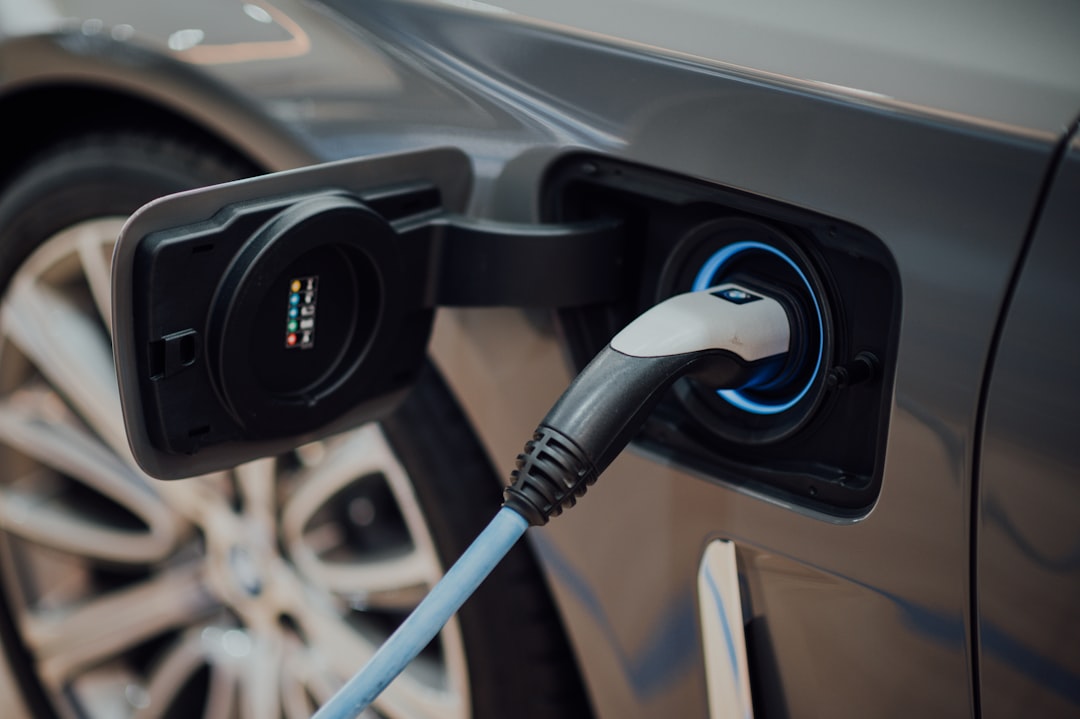As the world shifts towards sustainable energy solutions, electric vehicles (EVs) have emerged as a pivotal component in reducing carbon emissions and combating climate change. However, the widespread adoption of EVs hinges significantly on the development of a robust charging infrastructure. You may find yourself wondering how this infrastructure is evolving and what it means for you as a potential EV owner or user.
The charging network is not merely a collection of stations; it represents a critical backbone that supports the transition to cleaner transportation. The growth of EV charging infrastructure is essential for addressing range anxiety, a common concern among potential EV buyers. You might be hesitant to invest in an electric vehicle if you worry about the availability of charging stations during your travels.
As more charging stations are installed in urban areas, highways, and rural locations, the convenience of owning an EV increases. This infrastructure not only facilitates the daily commutes of individuals but also supports long-distance travel, making electric vehicles a more viable option for everyone.
Key Takeaways
- EV charging infrastructure is essential for the widespread adoption of electric vehicles and the transition to a cleaner transportation system.
- Building EV charging stations can be costly, with factors such as equipment, installation, and ongoing maintenance contributing to the overall expenses.
- The economic benefits of EV charging infrastructure include job creation, increased consumer spending, and the potential for real estate development.
- Utility companies and grid infrastructure will need to adapt to the increased demand for electricity from EV charging, which may require significant investment and upgrades.
- Government incentives and funding play a crucial role in the development and expansion of EV charging infrastructure, encouraging private sector investment and innovation.
The Cost of Building EV Charging Stations
Building EV charging stations involves various costs that can vary widely based on location, technology, and installation requirements. You may be surprised to learn that the initial investment can be substantial, often ranging from tens of thousands to hundreds of thousands of dollars per station. Factors such as site preparation, electrical upgrades, and permitting can significantly influence these costs.
For instance, if you were to consider installing a charging station at your business or home, you would need to account for not just the charger itself but also the necessary electrical infrastructure to support it. Moreover, the type of charging station plays a crucial role in determining costs. Level 1 chargers, which are the most basic and slowest, are generally less expensive to install than Level 2 or DC fast chargers.
Understanding these costs is essential for stakeholders considering investing in EV charging infrastructure, as it allows for better financial planning and resource allocation.
The Economic Benefits of EV Charging Infrastructure

The establishment of EV charging infrastructure brings with it a plethora of economic benefits that extend beyond just the immediate convenience for electric vehicle owners. You may not realize that these charging stations can stimulate local economies by attracting new businesses and enhancing existing ones. For example, as more charging stations are installed in commercial areas, they can draw in customers who may otherwise not have visited those locations.
This increased foot traffic can lead to higher sales for local retailers and restaurants. Additionally, the presence of charging stations can create new revenue streams for property owners and municipalities. If you own a commercial property, installing charging stations can make your location more attractive to tenants and customers alike.
You might find that offering charging services not only enhances your property’s value but also generates income through usage fees or partnerships with charging network providers. The economic ripple effect of investing in EV charging infrastructure is significant, creating opportunities for growth and innovation across various sectors.
Impact on Utility Companies and Grid Infrastructure
| Impact | Utility Companies and Grid Infrastructure |
|---|---|
| Increased Demand | Higher strain on grid infrastructure and potential need for upgrades |
| Renewable Energy Integration | Challenges in integrating fluctuating renewable energy sources into the grid |
| Cybersecurity Risks | Increased vulnerability to cyber attacks on utility systems |
| Resilience Planning | Need for investment in grid resilience to withstand extreme weather events |
The expansion of EV charging infrastructure poses both challenges and opportunities for utility companies and grid infrastructure. As more individuals transition to electric vehicles, you may wonder how this shift will affect energy demand and distribution. On one hand, increased demand for electricity can strain existing grid systems, particularly during peak hours when many EVs are being charged simultaneously.
Utility companies must adapt to this new reality by investing in grid upgrades and smart technologies that can manage load effectively. On the other hand, the integration of EVs into the grid also presents opportunities for utilities to innovate and enhance their services. You might be interested to know that vehicle-to-grid (V2G) technology allows electric vehicles to return energy back to the grid during peak demand periods.
This not only helps stabilize the grid but also provides financial incentives for EV owners who participate in such programs. As utilities embrace these advancements, they can play a crucial role in facilitating the growth of EV charging infrastructure while ensuring reliable energy delivery.
Government Incentives and Funding for EV Charging Infrastructure
Government incentives play a vital role in accelerating the development of EV charging infrastructure. If you are considering investing in an electric vehicle or supporting charging station installations, you may benefit from various federal, state, and local programs designed to promote clean energy initiatives. These incentives can take many forms, including tax credits, grants, and rebates that significantly reduce the financial burden associated with building charging stations.
For instance, you might find that certain states offer substantial rebates for businesses that install EV chargers on their premises. These incentives not only make it more affordable for property owners but also encourage widespread adoption of electric vehicles among consumers. By leveraging government support, stakeholders can help create a more extensive network of charging stations that ultimately benefits everyone involved in the transition to sustainable transportation.
The Role of Private Sector Investment in EV Charging Infrastructure

While government incentives are crucial, private sector investment is equally important in building out EV charging infrastructure. You may notice that many companies are stepping up to fill the gaps left by public funding alone. Private investors recognize the growing demand for electric vehicles and are eager to capitalize on this trend by funding the development of charging networks.
This influx of capital can accelerate the deployment of charging stations across various locations, making them more accessible to consumers. Moreover, partnerships between private companies and local governments can lead to innovative solutions that enhance the efficiency and reach of charging infrastructure. For example, if you were involved in a local business initiative, collaborating with a private company specializing in EV chargers could result in mutually beneficial outcomes—such as increased customer traffic for your business and expanded charging options for EV owners in your community.
The synergy between public and private sectors is essential for creating a comprehensive and effective charging network.
The Potential for Job Creation in the EV Charging Industry
The growth of EV charging infrastructure is poised to create numerous job opportunities across various sectors. If you are considering a career change or looking for new job prospects, you might find that the burgeoning electric vehicle industry offers exciting possibilities. From installation technicians who set up charging stations to engineers who design advanced charging technologies, there is a wide range of roles available.
Additionally, as more businesses invest in EV chargers, there will be an increased demand for support services such as maintenance and customer service. You may also see opportunities arise in related fields such as renewable energy and smart grid technology as these sectors intersect with the expansion of EV infrastructure. The potential for job creation is significant, contributing not only to individual livelihoods but also to broader economic growth as communities adapt to this new landscape.
The Effects on Property Values and Real Estate Development
The presence of EV charging stations can have a positive impact on property values and real estate development trends. If you are a property owner or investor, you may want to consider how adding charging infrastructure could enhance your property’s appeal. Properties equipped with EV chargers are increasingly seen as desirable by tenants and buyers alike, particularly as electric vehicles become more mainstream.
Moreover, developers who incorporate charging stations into their projects may find themselves at a competitive advantage in attracting environmentally conscious consumers. You might notice that new residential developments are increasingly featuring dedicated spaces for EV chargers as part of their amenities package. This trend not only boosts property values but also aligns with broader sustainability goals that resonate with today’s buyers.
The Impact on Consumer Spending and Retail Businesses
The establishment of EV charging infrastructure can significantly influence consumer spending patterns and retail businesses’ performance. As more consumers adopt electric vehicles, you may observe changes in shopping habits driven by the convenience of charging while they shop or dine out. Retailers located near charging stations could see increased foot traffic from EV owners who choose to charge their vehicles while they engage in other activities.
Furthermore, businesses that offer charging facilities may benefit from enhanced customer loyalty as consumers appreciate the added convenience. If you own or manage a retail establishment, providing access to EV chargers could differentiate your business from competitors and attract environmentally conscious customers who prioritize sustainability in their purchasing decisions.
The Financial Implications for Electric Vehicle Owners
For electric vehicle owners like yourself, understanding the financial implications of owning an EV is crucial as it relates directly to your overall cost of ownership. While the initial purchase price of an electric vehicle may be higher than that of a traditional gasoline-powered car, you might find that long-term savings on fuel and maintenance can offset this difference significantly over time. Moreover, access to public charging stations can further enhance your savings if they offer lower rates compared to home electricity costs or if they are free altogether at certain locations.
As you navigate your options as an EV owner, being aware of available incentives and rebates can also help reduce your overall expenses while promoting sustainable transportation choices.
The Future Outlook for the Financial Impact of EV Charging Infrastructure
Looking ahead, the financial impact of EV charging infrastructure is expected to grow exponentially as electric vehicle adoption continues to rise globally. You may anticipate that advancements in technology will lead to more efficient and cost-effective charging solutions over time. As battery technology improves and charging speeds increase, the overall experience for consumers will become even more seamless.
Additionally, as governments worldwide commit to reducing carbon emissions and promoting clean energy initiatives, investments in EV infrastructure will likely increase significantly. This trend could lead to further job creation and economic growth within communities as they adapt to this evolving landscape. As an individual considering your role in this transition—whether as an investor, consumer, or business owner—staying informed about these developments will be essential for maximizing your benefits from this transformative shift towards sustainable transportation solutions.
This resource provides insights into the economic implications and investment opportunities within the EV charging sector. You can read more about it by visiting
